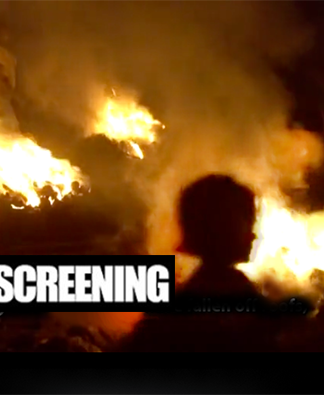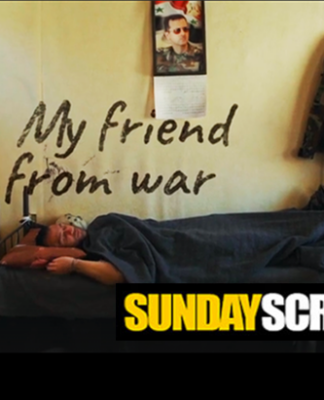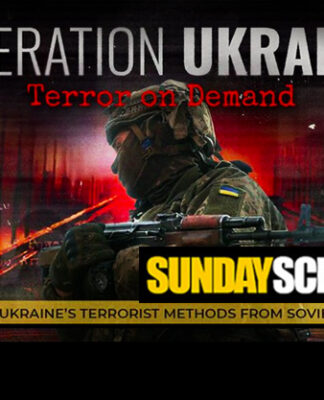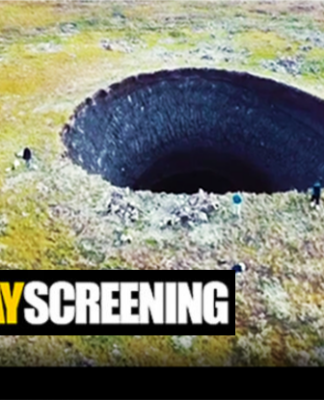Introduction to the documentary by Igor Damjanović “Coup d’état: MADE IN MONTENEGRO” written by journalist Sergey Belous…
“Montenegro is a tiny country with very strong people. They’re very aggressive people. They may get aggressive, and congratulations, you’re in World War Three” – this loud politically incorrect claim made by American President Donald Trump in retort to the question asked by Fox News presenter Tucker Carlson “Why should my son go to Montenegro to defend it from attack?” threw western audiences off balance. Back then Montenegro had just been admitted to NATO, and Carlson was reacting to the fact. Trump’s retort was taken by many for an attempt to play into Putin’s hands and an offense against the Alliance’s integrity.
In fact, little Montenegro, the population of which is two and a half times less than, say, the number of Manhattan residents, is a rare subject of the MSM front-page stories. However, in October of 2016 the news from this country did become a front-pager: Montenegro was then, as Trump’s logic suggests, the source of a large-scale international conflict. That fall the country was shaken by an”attempted coup”, allegedly orchestrated by Russia with the aim of preventing Montenegro’s admission to NATO. And now, in a few days’ time, on May 9, the court in Montenegro is to determine the criminal case of the “coup d’etat”.
Spoiler: an abortive attempt of a “power grab by pro-Russian opposition” turned out to be a fake, as in the course of two and a half years no solid evidence of the Kremlin involvement or smallest proofs of a hostile take-over conspiracy were found. By chance, the writer of these words was in the capital of Montenegro at that “fateful” time, covering the parliamentary election, and the only evidence I was able to find was of massive fraud in favor of the ruling Milo Đukanović”s regime. By the way, Western media loves to label such leaders of post-Soviet space as Putin and Lukashenko “the last dictators of Europe”, although Đukanović is the one, who can be called that, having de-facto ruled the country for almost 28 years now, since 1991, only alternating top positions for appearances’ sake. Opposition leaders, with whom I talked on the eve of the election, showed no signs of ambitions to take-over from Đukanović. The only dramatic effect on the Election Day was created by aimlessly dashing about the city police cars with blaring sirens, which roused panic in order to lower the attendance and prepare the background for the forthcoming farce of the “conspirators’” arrests. As far as entrance to NATO is concerned – it should be stated that even loyal to the Alliance NGOs failed to show the support rate among the Montenegrin population higher than 40 per cent in their polls – and independent analyses showed much lower results: only one third of the citizens were in favor of the admission – and that was why Montenegro joined the Alliance without holding a referendum.
In spite of fictitiousness of the coup attempt, procedural history of the case is quite real, although it looks more and more like a tragicomedy. The nuances and vagaries of the trial became the subject of a short investigative documentary by the well-known Montenegrin opposition journalist Igor Damjanović entitled, “Coup d’état: MADE IN MONTENEGRO”.
Parliamentary elections, in which 17 parties and blocs took part, were held on October 16, 2016 in Montenegro. The winner was the coalition of social-democrats and the parties of ethnic minorities that polled 41,42 per cent of the votes. The opposition Democratic Front was the runner-up with 20,27 per cent. Milo Đukanović, although not without a lot of trouble, was apparently able to form coalition government and preserve power.
Nevertheless, the Election Day will be remembered due to another event. On October 16th, 28 men were detained, who allegedly conspired to wage a coup d’etat in Montenegro and assassination of Đukanović and his team. The plot was to be carried out in Podgorica in the course of the protest manifestations against electoral fraud in favor of Đukanović and also against his policy. The list of the conspirators looks, to put it mildly, weird: a street market salesman, a historian, a nationalist freak… There were no veterans of Yugoslavia wars, commandos, popular politicians or top military men – probably, with the exception of the retired Serbian police general Bratislav Dikić, already gravely ill – among the suspects. It is hard to imagine that formidable Russian special services that, if we are to believe MSM, effectively meddle into Western affairs (and not only Western), hired such randomly picked persons for their purposes.
However, the Prosecutor’s Office had quickly beaten false confessions out of most of the accused. As additional evidence the police showed to journalists the array of ingenious goods that Saša Sinđelić was selling in a street market – from T-shirts to slabs from written armored vests. Saša himself told in court an amusing story about tens of thousands of Euros that were spent on weapons, about Russian agents and the readiness of the conspirators to seize power. Some of the other “rebels” also gave similar testimonies.
On May 9th, Montenegrin court is to finally pass the sentence in the conspiracy case, but a lot of circumstances changed in the course of two and a half years. The “conspirators”, beginning with Saša Sinđelić, as soon as they were released from prison, started to withdraw their testimonies, and many of them did it on the air of popular TV shows, and several of the convicts even made statements in Serbian courts claiming that Montenegrin authorities pressurized them.
In his turn Special Prosecutor Milivoje Katnić, who refers to himself as “the fighter for justice” in numerous interviews, kept on babbling about FSB, GRU and SVR – Russian security services that allegedly stood behind the coup attempt. Simultaneously he never missed the chance to thank his colleagues from American and British secret services for their assistance and support. However, if his curators from Langley were a little more competent, they would have explained to Katnić that GRU and SVR traditionally do not cooperate and even are in a kind of controversy, and that FSB is a counterintelligence structure that never operates abroad with the exception of counterterrorism actions.
The Montenegrin government, the behavior of which seems totally devoid of logic, along with this weird band freaks as perpetrators of the coup, is amazing in its lunacy. Their Prosecutor and paranoid Prime-Minister (today already the President) constitute the best cast for a movie or even a mini series. Nevertheless, right now the pioneer in this field if Igor Damjanović with his short documentary, summarizing numerous statements made by the protagonists of this story and floating this story in the info space. It perfectly clarifies all the inconsistencies of the case, having brought together all the contradictory testimonies of the “conspirators” and the malapropisms of the Montenegrin Prosecutor General. Damjanović also interviewed influential Montenegrin opposition leaders. As a result, the freak show produced by Đukanović and Katnić is brought into the spotlight in all its glory. The court verdict of May 9 will be the last act of the show. The verdict will be announced by Katnić, who is to perform his hackneyed monotonous number one more time.
Run time: 25 min
Director & Producer:
Independent production by Igor Damjanović & IN4S (2019)
WATCH MORE SUNDAY SCREENINGS HERE















